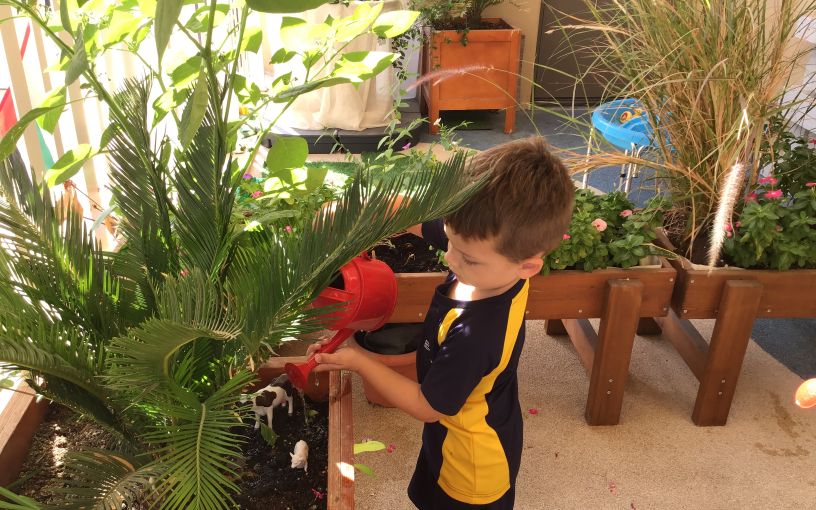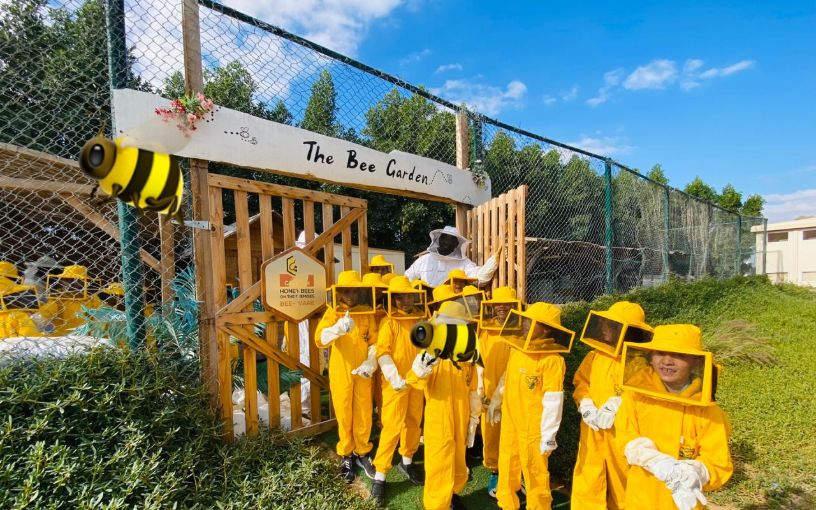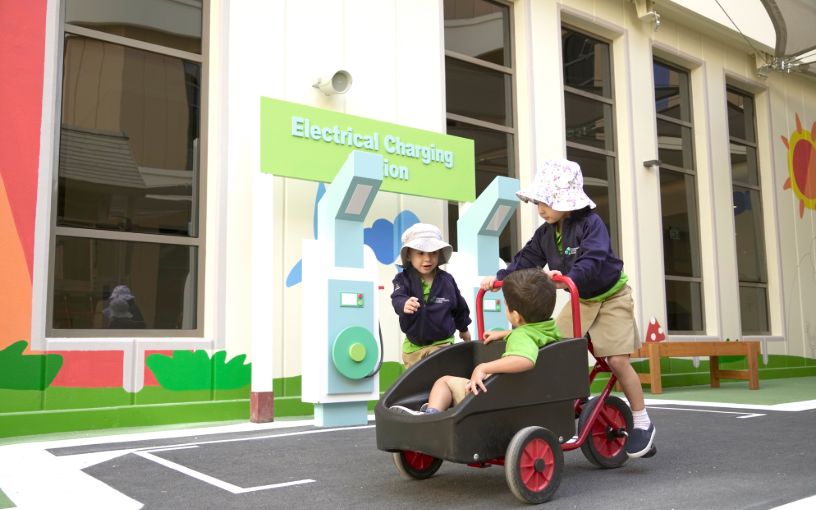Here, we explore why more and more educators are providing schools where nature-based education is at the core of the curriculum, especially during the early years.

From peacefulness to utter exuberance, surely you remember the range of emotions you experienced as a child playing outside, no matter the season. The astounding psychological and developmental responses children experience with time spent under the sun, walking through a freshly cut lawn, climbing a tree, chasing butterflies, or digging in a garden, is why more and more educators seek to provide schools where nature is at the core of the curriculum, especially during the early years.
While evidence in countless journals suggests that access to nature and green space provides children with myriad of cognitive, emotional and physical benefits; such as increased ability to concentrate, improved academic performance, reduced stress and aggression levels, and reduced risk of obesity; children are still spending less time outdoors than ever before.
Beyond the psychological and physical benefits of nature-based early years programmes, many educators, environmentalists, scholars and parents are becoming increasingly aware of how an early connection with nature will help foster a natural desire in children to care about sustainability – they grow up with a propensity toward protecting and caring for the environment.

Located in The Sustainable City, Fairgreen International School was one of the first schools in Dubai to open with a mission to embrace and promote sustainability in all its forms among its students, starting from early childhood. Here, we speak to Fairgreen’s Early Years Coordinator Cheryl Wood about how the school is fulfilling its mission to connect students to the natural world.
How do children benefit from learning outdoors?
Children at a young age need to have time to connect with nature and to begin to understand the world around them. Human beings are naturally curious from birth, and allowing children time outdoors broadens their scope of curiosity, as well as helping them to develop both
their gross motor control and their physical growth. Studies have shown how increased time outdoors can help to support children’s eye development, for example. Learning simply should not be restricted by four walls. It must span to the outside world.
How does Fairgreen’s Early Childhood programme incorporate learning from nature?
In a typical school year, our location in The Sustainable City allows us to connect with nature through the abundance of activities and natural environments prevalent outside our back door, such as feeding the farm animals in the animal sanctuary and duck pond, observing how to care for them and what they need to grow. This links with our IB Units of Inquiry such as ‘Sharing The Planet’ and ‘How the World Works.’
Children enjoy learning about how to grow and care for plants in our biodome and garden plot. It helps children with their early phonics skills to go on listening walks around the community and hear the wide range of different sounds such as the donkeys braying, ducks quacking, birds tweeting and water trickling from the fountains. These are sounds that many children do not experience within Dubai on a daily basis.
Due to Covid-related restrictions, students haven’t been able to get out into The Sustainable City as much this academic year, given that schools are not allowed any off-campus activities. To compensate, students have been growing and tending their own gardens on the terraces outside their classrooms. Our secondary students recently designed and planted a new rooftop garden and our Early Years students will soon begin tending to a portion of this garden as well.
We also have tower gardens where students are growing herbs and small plants. In addition to time spent playing in our ergonomically designed, multi-sensory playground, early years students ride our three-wheel bicycles around campus nearly every day, helping them develop gross motor control while also allowing them to reap in the fresh air and sunshine.

A big emphasis at Fairgreen is on helping students develop a passion for sustainability. How are teachers doing this at these early stages of student development?
Sustainability is something that we talk with the children about continually. We recycle within the classroom. We encourage children to bring in reusable items from home to use in their craft projects, choosing reusable materials over glitter and sequins. We have created classroom environments that are sustainable and link to nature. We avoid bright coloured decor and instead use natural colours and resources, as these help to develop children’s concentration levels and the materials are sustainable. We plan in Units of Inquiry that link to how to use our tower gardens and we teach children how we can grow food sustainably. We explain conservation of water and electricity to the children. We select students to be ‘light monitors’ who tell us when we can turn the lights off and make sure that we switch them off when we are leaving a classroom.
Why do you feel it’s important for young children to learn about the concepts of sustainability from an early stage?
Children are the future of the planet. We need them to have a solid understanding of the importance of sustainability so that they will grow into adults who will change the world.
Join Fairgreen International School’s “Early Years Discovery” Virtual Open Day on Wednesday 13th January, at 11am via Zoom. You’ll meet Fairgreen’s Director, the Early Years Coordinator and learn more about their Early Years programme, IB curriculum, emphasis on sustainability, and culture of care and wellbeing.
Visit fairgreen.ae/virtual to register!
